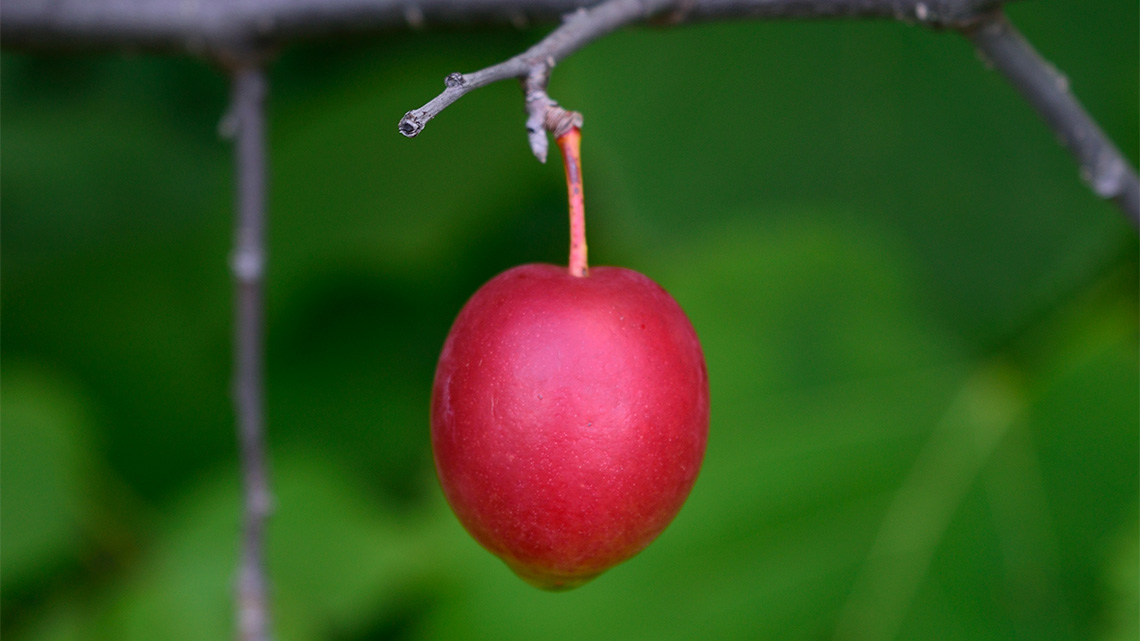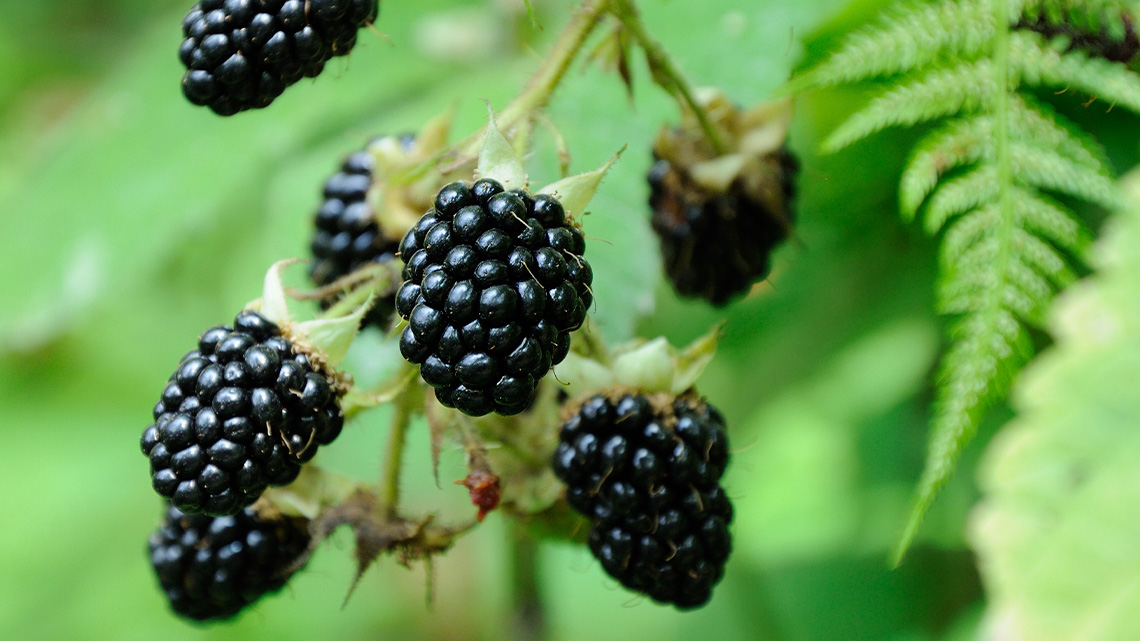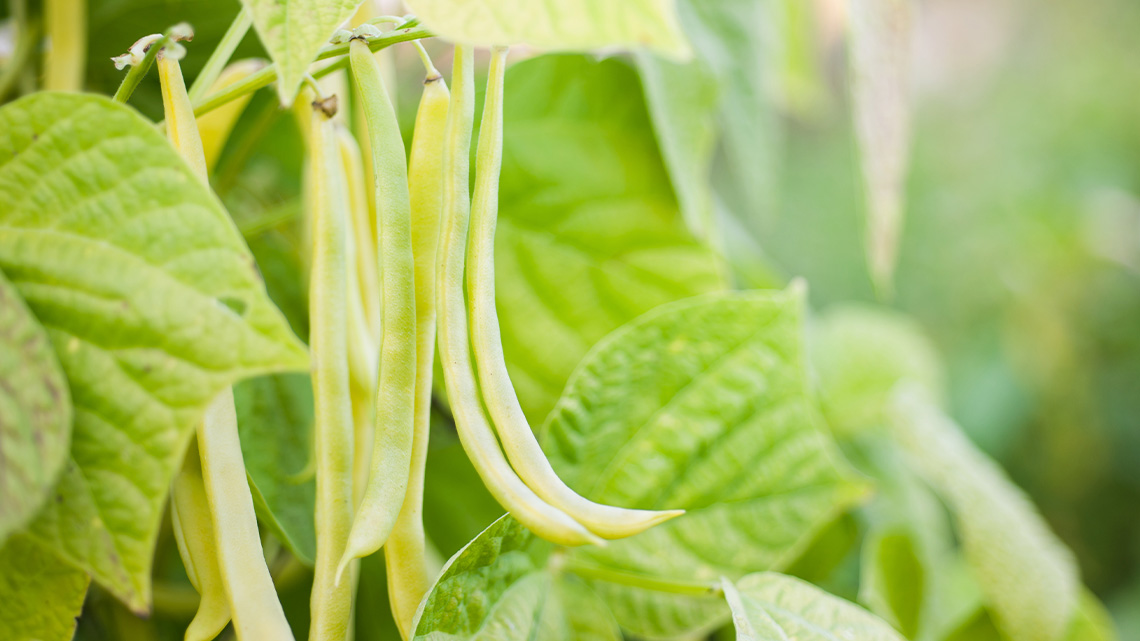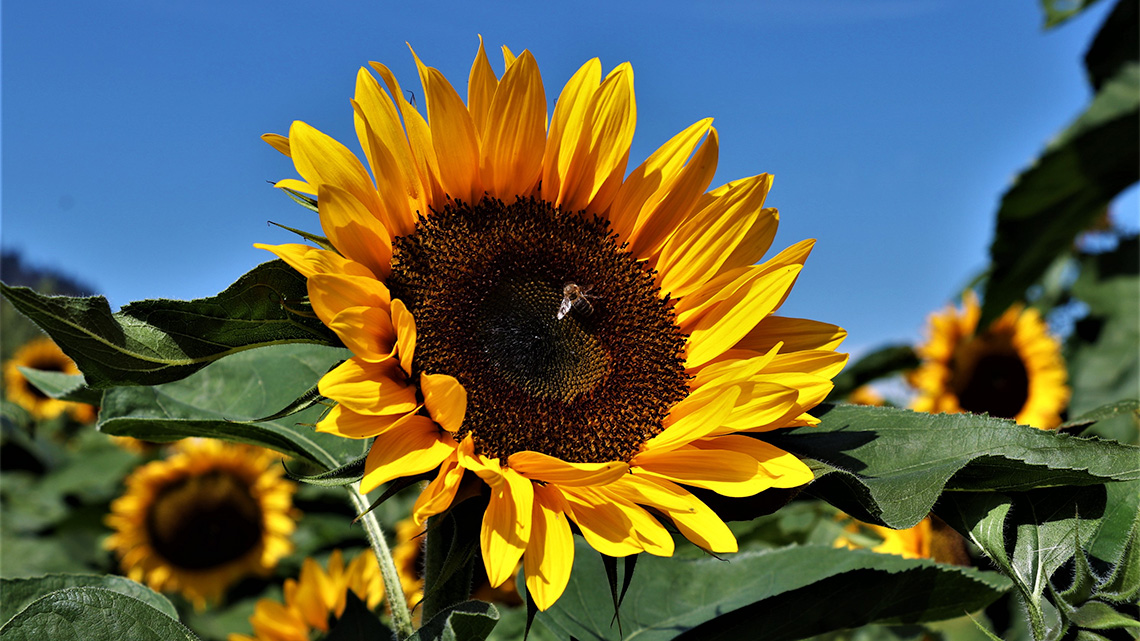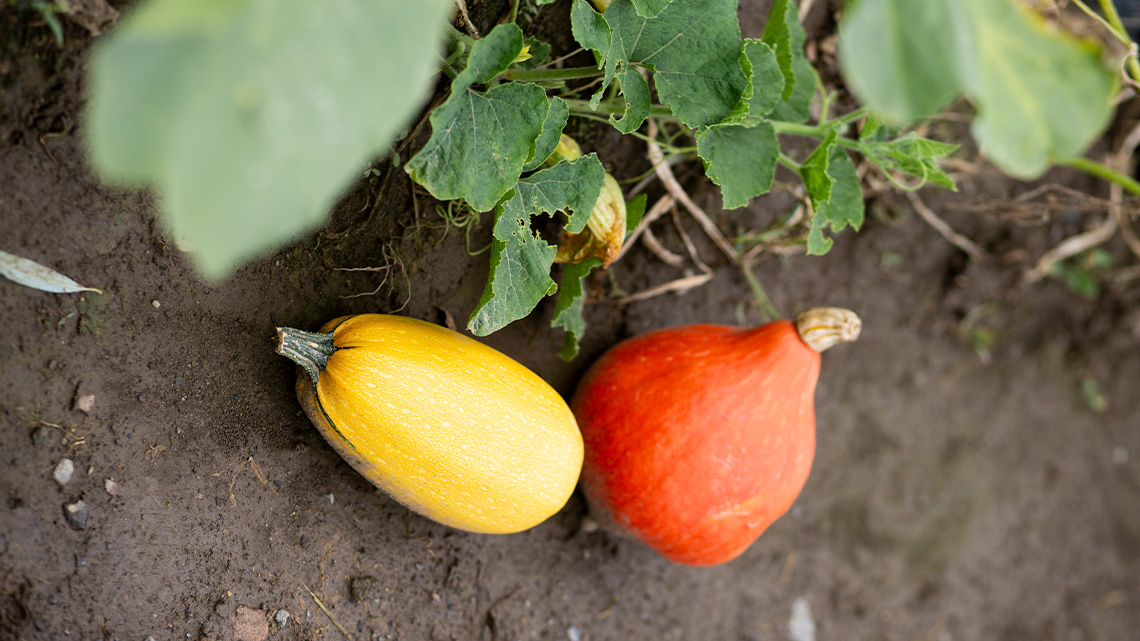Minds On
Counting on a farm
Many farms grow different fruits, vegetables, and plants.
Explore the following video entitled Haudenosaunee Farm to learn about some of the different plants grown on Gabby’s friend’s farm.
How many?
The next day, Gabby and Terry Lynn went out to pick and forage for more seeds and vegetables.
Using a method of your choice, count the total number of each seed or vegetable.
How many coriander seeds are there?

Coriander seeds
Press Answer to learn how many coriander seeds there are.
There are 15 coriander seeds.

How many black walnuts are there?

Black walnuts
Press Answer to learn how many black walnuts there are.
There are 12 black walnuts.

How many cobs of corn are there?

White corn
Press Answer to learn how many cobs of corn there are.
There are 6 cobs of corn.

Action
Seeds and plants
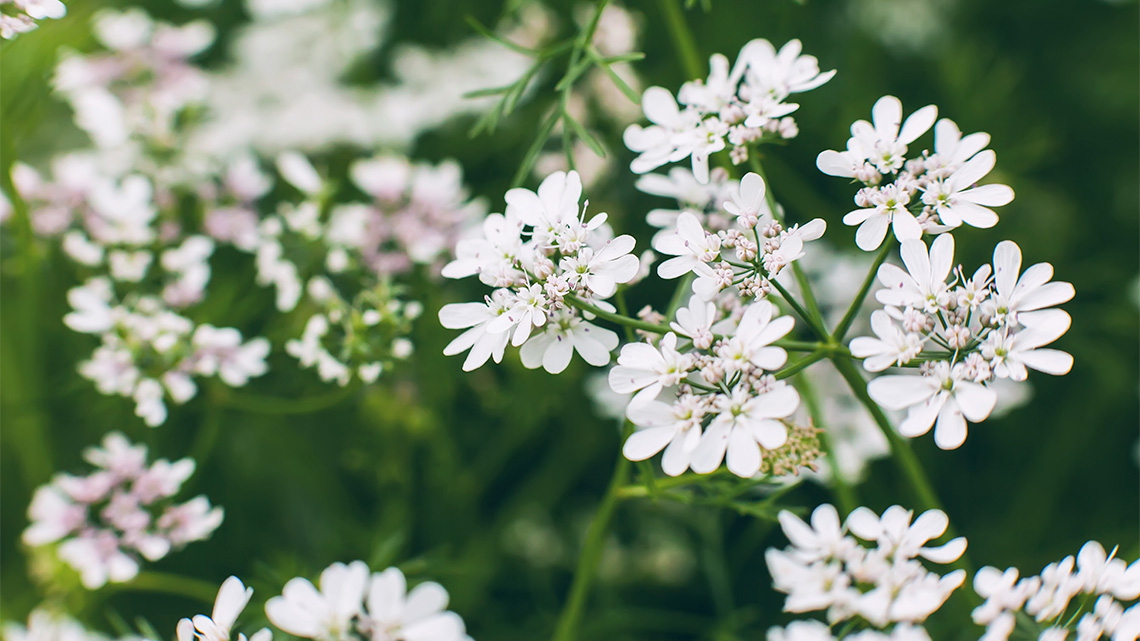
Coriander flower
As explored in the video in the Minds On, Gabby’s friend Terry Lynn is a Seedkeeper from the Six Nations of the Grand River.
Terry Lynn has been growing and caring for different types of plants her whole life.
She helps young people in her community learn about important seeds and plants.
Pause and Reflect
Pause and reflect

Why might it be important to learn about different types of seeds and plants?
What is one thing you learned from Terry Lynn that you could share with a friend?
Plants in Canada
There are many plants that grow in Canada.
Examine the following images to learn about a few of them.
What do you notice about each type of plant?
Let’s plan our own garden using some of the plants explored. We will also learn some counting strategies as we go!
Counting plants
There are many different ways to count items.
Examine the following image. How would you count the sunflowers?

How did you count the sunflowers? Did you count them 1 by 1, or did you use another method?
Explore this video entitled Skip counting to learn more about different ways to count items.
Planting: Counting by 2s
Now let’s plant some blackberries! The garden is divided into 50 sections.
Explore the following garden. In which spaces are the blackberries planted?

Did you notice that the blackberries are planted every two spaces?
When we count by 2, it is called skip counting by 2.
The blackberries are planted in the following spaces:
2, 4, 6, 8, 10, 12, 14, 16, 18, 20, 22, 24, 26, 28, 30, 32, 34, 36, 38, 40, 42, 44, 46, 48, 50
Brainstorm
What do you notice?
Do you notice a pattern when skip counting by 2?
When you're ready, press 'Sample Answer' to explore one possible pattern.
Planting: Counting by 5s
Next, let’s plant a bean every 5 spaces.
You may wish to use the following number chart, counters, or another method of your choice to help you count and support your thinking. To use the number chart, click on the bean, then click on the numbered squares where you would like to plant them. Remember to plant the beans every 5 spaces.
In what spaces are the beans planted?
Hint: in this example we are skip counting by 5s!
Press Sample Answer to access the list of numbers where the beans are planted.
The beans are planted in spaces:
5, 10, 15, 20, 25, 30, 35, 40, 45, 50
Do you notice a pattern in the numbers when we skip count by 5?
Your turn!
Let’s practice counting by 1, 2, and 5!
For each counting pattern, select the missing number from the drop-down menu.
Consolidation
Planting: Counting by 10s

Now that you have explored counting by 1 and skip counting by 2 and 5, it’s time to try skip counting by 10!
It’s your turn to plant wild plums every 10 spaces.
You may wish to use the following number chart, counters, or another method of your choice to help you count and support your thinking. To use the number chart, click on the wild plum, then click on the numbered squares where you would like to plant them. Remember to plant the plums every 10 spaces.
Student Success
Counting by 10
In what spaces are the plums planted? Record a list using a method of your choice.
Do you notice a pattern in the numbers when we skip count by 10?
Reflection
How do you feel about what you have learned in this activity? Which of the next four sentences best matches how you are feeling about your learning? Press the button that is beside this sentence.
I feel...
Now, record your ideas about your feelings using a voice recorder, speech-to-text, or writing tool.
Press ‘Discover More’ to extend your skills.
Discover MoreExploring an Indigenous garden
Andrew Judge (Mko'Mosé or Bearwalker) designed a special garden called Minjimendan.
He made his design using Anishinaabe teachings, and with the advice of Indigenous Elders around the world.
What do you notice about the shape of the garden?
How many plants are in the garden?
Hint: you might try counting by 1, by 2, by 5 or using another method of your choice.
 Description
Description
A semi-circle garden with 3 nested arches. The outermost arch has pink flowers arranged in 4 groups of 2. The middle arch has 3 blue flowers. The innermost arch has red flowers arranged in 1 group of 5.
Source: Minjimendan, Garden of Remembering. (2021,
February
23). A\J. Retrieved October 13, 2022,
from
https://www.alternativesjournal.ca/sustainable-life/minjimendan-garden-of-remembering/
